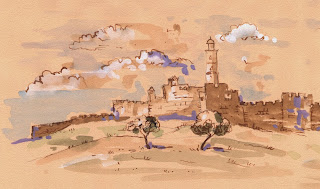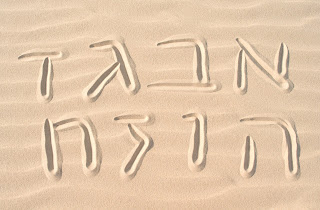Let Your Hands Dance
By Esther Mandella
Do your hands dance with you? Have you ever watched professional body language experts on television? It is fascinating to learn the tricks and tips to discover if someone is telling the truth or spinning a yarn. One tip experts give was to see if the person’s body “sings” with them as they talk.
What does that mean exactly? Ask yourself about the person you are watching, do their hands' wave in the same direction as their head? Is their mouth saying yes, but their head is shaking no? If their body doesn’t “sing," they might be telling you a tale.
As Jewish people, we speak from our hearts instinctively. Many of us like to talk with our hands, expressing the inner feelings of our neshamas all the way out to the tips of our fingers. Perhaps that is why when we teach babies to talk, many parents now incorporates sign language to help their little one learn to express herself.
Saying the word "wait" in sign language is quite fun! You hold your hands up and wiggle them while facing your palms in an upward stance. If you want someone to be patient with you, you don’t just say the word, you move in an active way.
Tehillim 27:14 says
Wait on Hashem;
Be strong, and let thy heart take courage;
Yea, wait thou for Hashem.
When you daven for an answer do you find it can be hard to wait for an answer? You ask the Eternal One, should you move or should you stay? Should you choose this opportunity, or move on with other choices? You try to hear from the Heavens.
Waiting for clarity can feel like an eternity! I think the Scriptures, and our very nature as expressive people give us a clue on how to handle the waiting, with joy!
First, we are to wait on Hashem ACTIVELY! Just like wiggling your fingers while saying "wait" in sign language, we wait actively.
If it helps, imagine you are a waiter in a fine dining establishment. Every time a patron takes a sip or two of wine, you run to fill up the glass. You actively wait by doing something!
The Scripture tells us what to do! When you wait on the L-rd, you actively must “chazak,” be strong. Your heart is to “take courage.”
David talks to himself throughout Tehillim and we should too! Say Scripture to yourself on a constant basis. Personalize it, and apply the hope and strength passages to your own neshama. We are in a relationship with Hashem and I believe He likes it when we trust. Lean in close to hear what He has to say.
Keep living, keep hugging, keep laughing as you wait on His soon coming answer. Like a young woman, awaiting a letter from her love, run to the mailbox to check for the letter your heart longs for.
Be active! Let your body sing together with your heart, mouth, mind, and soul. And next time you dance, may you find the answers you seek join you in step on the dance floor!






